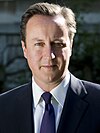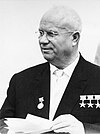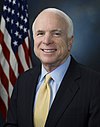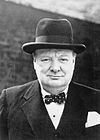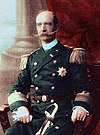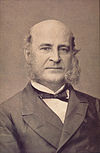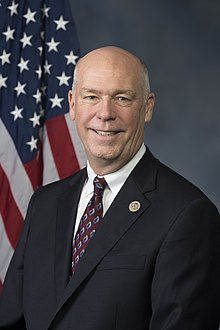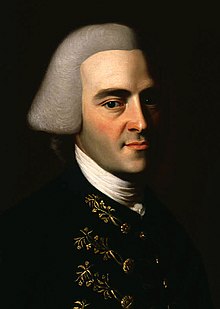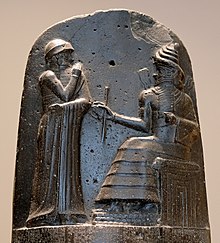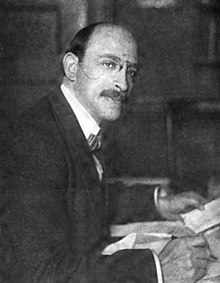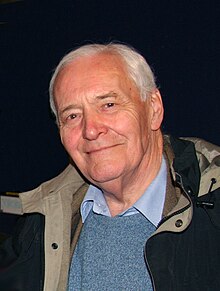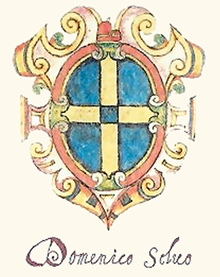Portal:Politics/Selected biography
Usage
The layout design for these subpages is at Portal:Politics/Selected biography/Layout.
- Add a new Selected article to the next available subpage.
- The "blurb" for all selected articles should be approximately 10 lines, for appropriate formatting in the portal main page.
- Update "max=" to new total for its {{Random portal component}} on the main page.
Selected biographies list
Selected biography 1
Portal:Politics/Selected biography/1
David William Donald Cameron (/ˈkæmərən/; born 9 October 1966) was Prime Minister of the United Kingdom, First Lord of the Treasury, Minister for the Civil Service and Leader of the Conservative Party. Cameron represents Witney as its Member of Parliament (MP). Cameron studied Philosophy, Politics and Economics at Oxford, gaining a first class honours degree. He then joined the Conservative Research Department and became Special Adviser to Norman Lamont, and then to Michael Howard. He was Director of Corporate Affairs at Carlton Communications for seven years. A first candidacy for Parliament at Stafford in 1997 ended in defeat, but Cameron was elected in 2001 as the Member of Parliament for the Oxfordshire constituency of Witney. He was promoted to the Opposition front bench two years later, and rose rapidly to become head of policy co-ordination during the 2005 general election campaign. With a public image of a young, moderate candidate who would appeal to young voters, he won the Conservative leadership election in 2005.
Selected biography 2
Portal:Politics/Selected biography/2
Samuel Adams (1722–1803) was an American statesman, politician, writer and political philosopher who was one of the Founding Fathers of the United States. Adams was instrumental in garnering the support of the colonies in rebellion against Great Britain, ultimately resulting in the American Revolution. He was also one of the key architects of the principles of American republicanism that shaped American political culture. Adams organized protests against the British, including the Boston Tea Party in 1773, and participated in the Continental Congress. He also advocated for the adoption of the Declaration of Independence at the Second Continental Congress. Following the American Revolution, Adams helped draft the Articles of Confederation. After the war ended, he ran for the House of Representatives in the 1st United States Congressional election, but was unsuccessful in his bid. He was elected Lieutenant Governor of Massachusetts in 1789 and after John Hancock's death in 1793, Adams served as the acting governor, until he was elected governor in January of the following year. He served in that position until June 1797 when he decided to retire from politics.
Selected biography 3
Portal:Politics/Selected biography/3
Margaret Thatcher (1925–2013) was a British politician and the first female Prime Minister of the United Kingdom, a position she held from 1979 to 1990. She was a member of the Conservative Party and the figurehead of a political ideology known as Thatcherism. Even before coming to power she was nicknamed The Iron Lady in Soviet propaganda, an appellation which stuck. The changes she set in motion between coming to power and 1985 were profound, and altered much of the economic, cultural and commercial landscape of Britain and, by example, the world as a whole. Along the way she also aimed to roll back the welfare state, or "nanny state", as she termed it. Her popularity finally declined when she replaced the unpopular local government rates tax with the even less popular Community Charge. At the same time the Conservative Party began to split over her sceptical approach to Economic and Monetary Union of the European Union. Her leadership was challenged from within and she was forced to resign in 1990, her loss at least partly due to inadequate advice and campaigning.
Selected biography 4
Portal:Politics/Selected biography/4
Józef Piłsudski (1867–1935) was Chief of State (1918–22), "First Marshal", and authoritarian leader of the Second Polish Republic. From mid-World War I he was a major influence in Poland's politics, and an important figure on the European political scene. He is considered largely responsible for Poland regaining independence in 1918, after 123 years of partitions. Early in his political career, Piłsudski became a leader of the Polish Socialist Party. Concluding, however, that Poland's independence would have to be won by force of arms, he created the Polish Legions. In 1914 he anticipated the outbreak of a European war, the Russian Empire's defeat by the Central Powers, and the Central Powers' defeat by the western powers. When World War I broke out, he and his Legions fought alongside the Austro-Hungarian and German Empires to ensure Russia's defeat. In 1917, with Russia faring badly in the war, he withdrew his support from the Central Powers. From November 1918, when Poland regained independence, until 1922, Piłsudski was Poland's Chief of State. In 1919–21 he commanded Poland's forces in the Polish–Soviet War. In 1923, with the Polish government dominated by his opponents, particularly the National Democrats, he withdrew from active politics. Three years later he returned to power with the May 1926 coup d'état, and became the de facto dictator of Poland. From then until his death in 1935, he concerned himself primarily with military and foreign policy.
Selected biography 5
Portal:Politics/Selected biography/5
Ronald Reagan (1911–2004) was the 40th President of the United States and the 33rd Governor of California. He was defeated in his run for the Republican presidential nomination in 1968 as well as 1976, but won both the nomination and election in 1980. As U.S. President, Reagan implemented new political initiatives as well as economic policies, advocating a laissez-faire philosophy, but the extent to which these ideas were implemented is debatable. The policies, dubbed "Reaganomics", included substantial tax cuts implemented in 1981. After surviving an assassination attempt and ordering controversial military actions in Grenada, he was re-elected in a landslide victory in 1984. Reagan's second term was marked by the ending of the Cold War, as well as a number of administration scandals, notably the Iran–Contra affair. He ordered a massive military buildup in an arms race with the Soviet Union, foregoing the previous strategy of détente. He publicly portrayed the USSR as an "Evil Empire" and supported anti-Communist movements worldwide.
Selected biography 6
Portal:Politics/Selected biography/6
Nikita Khrushchev (1894–1971) led the Soviet Union during the Cold War. He served as First Secretary of the Communist Party of the Soviet Union from 1953 to 1964, and as Chairman of the Council of Ministers, or Premier, from 1958 to 1964. Khrushchev was responsible for the partial de-Stalinization of the Soviet Union, for backing the progress of the world's early space program, and for several relatively liberal reforms in areas of domestic policy. Khrushchev was born in the Russian village of Kalinovka in 1894. With the help of Lazar Kaganovich, he worked his way up the Soviet hierarchy. He supported Stalin's purges, and approved thousands of arrests. Stalin's political heirs fought for power after his death in 1953, a struggle in which Khrushchev, after several years, emerged triumphant. On February 25, 1956, at the Twentieth Party Congress, he delivered the "Secret Speech", vilifying Stalin and ushering in a less repressive era in the Soviet Union. Hoping eventually to rely on missiles for national defense, Khrushchev ordered major cuts in conventional forces. Despite the cuts, Khrushchev's rule saw the tensest years of the Cold War, culminating in the Cuban Missile Crisis.
Selected biography 7
Portal:Politics/Selected biography/7
John Sidney McCain III (1936-2018) was the senior United States Senator from Arizona. He was the Republican nominee for president in the 2008 United States election. During the Vietnam War, he nearly lost his life in the 1967 USS Forrestal fire. In October 1967, while on a bombing mission over Hanoi, he was shot down, seriously injured, and captured by the North Vietnamese. He was a prisoner of war until 1973. McCain experienced episodes of torture, and refused an out-of-sequence early repatriation offer. His war wounds left him with lifelong physical limitations. While generally adhering to conservative principles, McCain at times has had a media reputation as a "maverick" for his willingness to disagree with his party on certain issues. He secured the Republican nomination in 2008 after coming back from early reversals, but lost to Democratic candidate Barack Obama in the general election.
Selected biography 8
Portal:Politics/Selected biography/8
Sir Winston Leonard Spencer-Churchill, (1874 – 1965) was a British politician and statesman known for his leadership of the United Kingdom during the Second World War. He is widely regarded as one of the great wartime leaders. He served as Prime Minister twice (1940–45 and 1951–55). A noted statesman and orator, Churchill was also an officer in the British Army, a historian, a writer, and an artist. During the 1930s, Churchill took the lead in warning about the danger from Hitler and in campaigning for rearmament. On the outbreak of World War II, he was again appointed First Lord of the Admiralty. Following the resignation of Neville Chamberlain on 10 May 1940, Churchill became Prime Minister. His steadfast refusal to consider defeat, surrender or a compromise peace helped inspire British resistance, especially during the difficult early days of the War when Britain stood alone in its active opposition to Hitler. Churchill was particularly noted for his speeches and radio broadcasts, which helped inspire the British people.
Selected biography 9
Portal:Politics/Selected biography/9
Yasser Arafat (1929–2004) was a Palestinian militant and politician. As Chairman of the Palestine Liberation Organization and President of the Palestinian National Authority, Arafat continuously fought against Israeli forces in the name of Palestinian self-determination. Arafat was constantly surrounded by controversy, as in the late 1960s and early 1970s, when Fatah faced off with Jordan in a civil war. Forced out of Jordan and into Lebanon, Arafat and Fatah were the targets of Israel's 1978 and 1982 invasions of that country. Arafat was said to be a key planner of the Black September organization's murder of eleven Israeli athletes at the 1972 Summer Olympics. The majority of the Palestinian people – regardless of political ideology or faction – viewed him as a heroic freedom fighter and martyr who symbolized the national aspirations of his people. However, many Israelis have described him as an unrepentant terrorist. In 1994, Arafat received the Nobel Peace Prize, together with Yitzhak Rabin and Shimon Peres, for the negotiations in the Oslo Accords. In late 2004, after effectively being confined within his Ramallah compound for over two years by the Israeli Defense Forces, Arafat became ill and fell into a coma, and later died.
Selected biography 10
Portal:Politics/Selected biography/10
David Lewis (1909–1981) was a Russian-born Canadian Rhodes Scholar, labour lawyer and social democratic politician. He was national secretary of the Co-operative Commonwealth Federation from 1936 to 1950. As the United Steelworkers of America’s legal counsel in Canada, he played a central role in the creation of the Canadian Labour Congress in 1956 and in the New Democratic Party (NDP)'s formation in 1961. In 1962, he was elected as a Member of Parliament. He was the NDP's leader from 1971 to 1975. After his defeat in the 1974 Canadian election, he retired from politics. He spent his last years as a university professor and a newspaper travel correspondent. In retirement, he was named to the highest level of the Order of Canada for his political service. After a lengthy battle with cancer, he died in 1981.
Selected biography 11
Portal:Politics/Selected biography/11
Nguyen Ngoc Tho was the first Prime Minister of South Vietnam, serving from November 1963 to late January 1964. Tho was appointed to head a civilian cabinet by General Duong Van Minh's military junta, which came to power after overthrowing and assassinating Ngo Dinh Diem, the nation's first president. Tho's rule was marked by a period of confusion and weak government, as the Military Revolutionary Council and the civilian cabinet vied for power. Tho oversaw South Vietnam's failed land reform policy, and was accused of lacking vigour in implementing the program because he was a large landowner. He was noted for his faithful support of Diem during the Buddhist crisis that ended the rule of the Ngo family. Despite being a Buddhist, Tho staunchly defended the regime's pro-Catholic policies and its violent actions against the Buddhist majority. Tho lost his job and retired from politics when Minh's junta was deposed in a January 1964 coup by General Nguyen Khanh.
Selected biography 12
Portal:Politics/Selected biography/12
Cosmo Gordon Lang (1864–1945) was an Anglican prelate who served as Archbishop of York and Archbishop of Canterbury. As Archbishop of Canterbury during the abdication crisis of 1936 he took a strong moral stance, and comments he made in a subsequent broadcast were widely condemned as uncharitable towards the departed king. In his early ministry Lang served in slum parishes in Leeds and Portsmouth before his appointment in 1901 as suffragan Bishop of Stepney in London. In 1908 Lang was nominated Archbishop of York, despite his relatively junior status as a suffragan rather than a diocesan bishop. He entered the House of Lords as a Lord Spiritual and caused consternation in traditionalist circles by speaking and voting against the Lords' proposal to reject David Lloyd George's 1909 "People's Budget". This apparent radicalism was not, however, maintained in later years. At the start of World War I, Lang was heavily criticised for a speech in which he spoke sympathetically of the Kaiser. After the war he supported controversial proposals for the revision of the Book of Common Prayer, but after acceding to Canterbury he took no practical steps to resolve this issue. As Archbishop of Canterbury he presided over the 1930 Lambeth Conference, which gave limited church approval to the use of contraception.
Selected biography 13
Portal:Politics/Selected biography/13
Ban Ki-moon (born 13 June 1944) is a South Korean diplomat and the former Secretary-General of the United Nations. Before becoming Secretary-General, Ban was a career diplomat in South Korea's Ministry of Foreign Affairs and in the United Nations. He entered diplomatic service the year he graduated college, accepting his first post in New Delhi. In the foreign ministry he established a reputation for modesty and competence. Ban was the Foreign Minister of the Republic of Korea from January 2004 to November 2006. In February 2006 he began to campaign for the office of Secretary-General. Ban was initially considered to be a long shot for the office. As Foreign Minister of South Korea, however, he was able to travel to all of the countries that were members of the United Nations Security Council, a manoeuvre that turned him into the campaign's front runner. On 13 October 2006, he was elected to be the eighth Secretary-General by the United Nations General Assembly. On 1 January 2007, he succeeded Kofi Annan, and passed several major reforms regarding peacekeeping and UN employment practices. Diplomatically, Ban has taken particularly strong views on global warming, pressing the issue repeatedly with United States President George W. Bush, as well as Darfur, where he helped persuade Sudanese President Omar al-Bashir to allow peacekeeping troops to enter Sudan.
Selected biography 14
Portal:Politics/Selected biography/14
Ed Stelmach (born 1951) was the Premier of Alberta, Canada, from December 14, 2006 to October 7, 2011. He spent his entire pre-political adult life as a farmer, except for some time spent studying at the University of Alberta. His first foray into politics was a 1986 municipal election, when he was elected to the county council of Lamont County. A year into his term, he was appointed reeve. He continued in this position until his entry into provincial politics. In the 1993 provincial election, Stelmach was elected as the Member of the Legislative Assembly for Vegreville-Viking. A Progressive Conservative, he served in the cabinets of Ralph Klein. When Klein resigned the party's leadership in 2006, Stelmach was among the first to run to replace him. After a third place finish on the first ballot of the leadership race, he won an upset second ballot victory over former provincial treasurer Jim Dinning. Stelmach's premiership has been heavily focused on management of the province's oil reserves, especially those of the Athabasca Oil Sands. Other policy initiatives have included commencing an overhaul of the province's health governance system, a re-introduction of all-party committees to the Legislature, and the conclusion of a major labour agreement with Alberta's teachers.
Selected biography 15
Portal:Politics/Selected biography/15
Grover Cleveland (1837–1908) was both the 22nd and 24th President of the United States. Cleveland is the only President to serve two non-consecutive terms (1885–1889 and 1893–1897) and therefore is the only individual to be counted twice in the numbering of the presidents. He was the winner of the popular vote for President three times—in 1884, 1888, and 1892—and was the only Democrat elected to the Presidency in the era of Republican political domination that lasted from 1860 to 1912. Cleveland's admirers praise him for his honesty, independence, integrity, and commitment to the principles of classical liberalism. As a leader of the Bourbon Democrats, he opposed imperialism, taxes, subsidies and inflationary policies, but as a reformer he also worked against corruption, patronage, and bossism. Critics complained that he had little imagination and seemed overwhelmed by the nation's economic disasters—depressions and strikes—in his second term. Even so, his reputation for honesty and good character survived the troubles of his second term.
Selected biography 16
Portal:Politics/Selected biography/16
Phạm Ngọc Thảo (1922–1965), a major provincial leader in South Vietnam and infiltrator of the Army of the Republic of Vietnam (ARVN), was a communist agent of the Viet Minh and later the Vietnam People's Army. As the overseer of Ngô Đình Nhu's Strategic Hamlet Program in the early 1960s, he deliberately forced the program forward at unsustainable speeds, constructing poorly equipped and poorly defended villages, in order to foster rural resentment against the regime of President Ngo Dinh Diem, Nhu's elder brother. Thao was posthumously promoted by the ARVN to the rank of one-star general and awarded the title of Heroic war dead (Vietnamese: Liệt sĩ). After the Fall of Saigon and the end of the Vietnam War, the communist government awarded him the same title and paid war pensions to his family, claiming him as one of their own.
Selected biography 17
Portal:Politics/Selected biography/17
George Herbert Walker Bush (1924–2018) was an American politician who served as the 41st President of the United States (1989–93). He had previously served as the 43rd Vice President (1981–89), a congressman, an ambassador, and Director of Central Intelligence. He ran unsuccessfully for president of the United States in 1980, but was chosen by party nominee Ronald Reagan to be the vice presidential nominee, and the two were subsequently elected. In 1988, Bush launched a successful campaign to succeed Reagan as president, defeating Democratic opponent Michael Dukakis. Foreign policy drove the Bush presidency; military operations were conducted in Panama and the Persian Gulf at a time of world change; the Berlin Wall fell in 1989 and the Soviet Union dissolved two years later. In the wake of economic concerns, he lost the 1992 presidential election to Democrat Bill Clinton.
Selected biography 18
Portal:Politics/Selected biography/18
George I of Greece was King of Greece from 1863 to 1913. Originally a Danish prince, when only 17 years old he was elected King by the Greek National Assembly, which had deposed the former King Otto. His nomination was suggested and supported by the three Great Powers (United Kingdom of Great Britain and Ireland, Second French Empire and the Russian Empire). As the first monarch of the new Greek dynasty, his 50-year reign (the longest in modern Greek history) was characterized by territorial gains as Greece established its place in pre-World War I Europe. Two weeks short of the fiftieth anniversary of his accession, and during the First Balkan War, he was assassinated. In sharp contrast to his reign, the reigns of his successors would prove short and insecure.
Selected biography 19
Portal:Politics/Selected biography/19
José Paranhos, Viscount of Rio Branco (1819–1880) was a politician, monarchist, diplomat, teacher and journalist of the Empire of Brazil. In 1871, Rio Branco became the President of the Council of Ministers (Prime Minister) for the first time. He would become the Council's longest-serving president, and his cabinet the second longest, in Brazilian history. His government was marked by a time of economic prosperity and the enactment of several necessary reforms—though they proved to be seriously flawed. The most important of these initiatives was the Law of Free Birth, which granted freeborn status to children born to slave women. Rio Branco led the government that enacted this law, and its passage increased his popularity. However, his government was plagued by a long crisis with the Catholic Church that had resulted from the expulsion of Freemasons from its lay brotherhoods. After more than four years heading the Cabinet, Rio Branco resigned in 1875. Following a long vacation in Europe, his health swiftly declined and he was diagnosed with oral cancer. Rio Branco died in 1880 and was widely mourned throughout the country. He is regarded by most historians as one of Brazil's greatest statesmen.
Selected biography 20
Portal:Politics/Selected biography/20
Ramón Emeterio Betances was a Puerto Rican nationalist. He was the primary instigator of the Grito de Lares revolution and, as such, is considered to be the father of the Puerto Rican independence movement. Betances was also the most renowned medical doctor and surgeon of his time in Puerto Rico, and one of its first social hygienists. He had established a successful surgery and ophthalmology practice. Betances was also a diplomat, public health administrator, poet and novelist. He served as representative and contact for Cuba and the Dominican Republic in Paris. A firm believer in Freemasonry, his political and social activism was deeply influenced by the group's philosophical beliefs. His personal and professional relationships (as well as the organizational structure behind the Grito de Lares, an event that, in theory, clashes with traditional Freemason beliefs) were based upon his relationships with Freemasons, their hierarchical structure, rites and signs.
Selected biography 21
Portal:Politics/Selected biography/21
Edmund Burke PC (12 January [NS] 1729– 9 July 1797) was an Irish statesman, author, orator, political theorist and philosopher who, after moving to England, served for many years in the House of Commons of Great Britain as a member of the Whig party. He is mainly remembered for his support of the cause of the American Revolutionaries, and for his later opposition to the French Revolution. The latter led to his becoming the leading figure within the conservative faction of the Whig party, which he dubbed the "Old Whigs", in opposition to the pro–French Revolution "New Whigs", led by Charles James Fox. Burke was praised by both conservatives and liberals in the 19th century. Since the 20th century, he has generally been viewed as the philosophical founder of modern Conservatism, as well as a representative of classical liberalism.
Selected biography 22
Portal:Politics/Selected biography/22
Barack Obama (born August 4, 1961) is the 44th President of the United States. He is the first African American to hold the office. Born in Honolulu, Hawaii, Obama is a graduate of Columbia University and Harvard Law School, where he was president of the Harvard Law Review. He served three terms representing the 13th District in the Illinois Senate from 1997 to 2004, running unsuccessfully for the United States House of Representatives in 2000. He began his presidential campaign in 2007, and in 2008, after a close primary campaign against Hillary Clinton, he won sufficient delegates in the Democratic party primaries to receive the presidential nomination. He then defeated Republican nominee John McCain in the general election, and was inaugurated as president on January 20, 2009. Nine months later, Obama was named the 2009 Nobel Peace Prize laureate. In foreign policy, Obama ended U.S. military involvement in the Iraq War, increased troop levels in Afghanistan, signed the New START arms control treaty with Russia, ordered U.S. military involvement in Libya, and ordered the military operation that resulted in the death of Osama bin Laden.
Selected biography 23
Portal:Politics/Selected biography/23
Elizabeth II (born 1926) is the constitutional monarch of 16 sovereign states known as the Commonwealth realms, head of the 54-member Commonwealth of Nations, and head of state of the Crown Dependencies and British Overseas Territories. Her father, George VI, acceded to the throne in 1936 on the abdication of his brother Edward VIII. She began public duties during the Second World War, in which she served in the Auxiliary Territorial Service. On George VI's death in 1952, she became Head of the Commonwealth and Queen of seven independent Commonwealth countries: the United Kingdom, Canada, Australia, New Zealand, South Africa, Pakistan, and Ceylon. Her coronation service in 1953 was the first to be televised. Since her accession, the number of her realms has varied as territories gained independence and some realms became republics. In 1947 she married Prince Philip, Duke of Edinburgh, with whom she has four children: Charles, Anne, Andrew, and Edward. Her reign of 72 years is the second-longest for a British monarch; only Queen Victoria has reigned longer. Elizabeth's Silver and Golden Jubilees were celebrated in 1977 and 2002; her Diamond Jubilee is being celebrated during 2012.
Selected biography 24
Portal:Politics/Selected biography/24
Richard Nixon (1913–1994) was the 37th President of the United States, serving from 1969 to 1974. He graduated from Whittier College in 1934 and Duke University School of Law in 1937, returning to California to practice law. He served in the United States Navy during World War II. Nixon was elected to the House of Representatives in 1946 and to the Senate in 1950. He served for eight years as vice president, from 1953 to 1961, and waged an unsuccessful presidential campaign in 1960, narrowly losing to John F. Kennedy. In 1968, Nixon ran again for president and was elected. He initially escalated the Vietnam War, but ended U.S. involvement in 1973. Nixon's visit to the People's Republic of China in 1972 opened diplomatic relations between the two nations. Though he presided over Apollo 11, he scaled back manned space exploration. He was re-elected by a landslide in 1972. A series of revelations in the Watergate scandal cost Nixon much of his political support in his second term, and on August 9, 1974, he resigned as president. In retirement, Nixon's work as an elder statesman, authoring several books and undertaking many foreign trips, helped to rehabilitate his public image.
Selected biography 25
Portal:Politics/Selected biography/25
George Walker Bush (born July 6, 1946) is an American politician who served as the 43rd President of the United States from 2001 to 2009. Before that he was the 46th Governor of Texas, serving from 1995 to 2000. In a close and controversial election, Bush was elected President in 2000 as the Republican candidate, defeating Vice President Al Gore in the Electoral College. A series of terrorist attacks occurred eight months into Bush's first term as president on September 11, 2001. In response, Bush announced a global War on Terror, ordered an invasion of Afghanistan that same year and an invasion of Iraq in 2003. In addition to national security issues, Bush promoted policies on the economy, health care, education, and social security reform. Bush successfully ran for re-election against Democratic Senator John Kerry in 2004, in another relatively close election. He was a highly controversial figure internationally, with public protests occurring even during visits to close allies, such as the United Kingdom.
Selected biography 26
Portal:Politics/Selected biography/26
Dobroslav Jevđević (1895–1962) was a Bosnian Serb politician and self-appointed Chetnik commander in the Herzegovina region of Yugoslavia during the Second World War. He was a member of the inter–war Chetnik Association and the Organisation of Yugoslav Nationalists party in the Kingdom of Yugoslavia, a Yugoslav National Party member of the National Assembly, and a leader of the opposition during King Alexander's dictatorship. Following the invasion of Yugoslavia by the Axis in April 1941, he became a Chetnik leader in Herzegovina and joined the Chetnik movement of Draža Mihailović, although he often operated independently from Mihailović. Jevđević collaborated with the Italians and later the Germans in actions against the Yugoslav Partisans. During a joint Italian-Chetnik Operation Alfa, Jevđević's Chetniks, along with other Chetnik forces, were responsible for killing between 500 and 1,700 Bosnian Muslim and Catholic civilians in the Prozor region in October 1942. His force also participated in one of the largest Axis anti-Partisan operations of the war, Case White, in the winter of 1943. In the spring of 1945, he fled to Italy where he resided until his death.
Selected biography 27
Portal:Politics/Selected biography/27
Zhou Enlai (simplified Chinese: 周恩来; traditional Chinese: 周恩來; pinyin: Zhōu Ēnlái; Wade–Giles: Chou En-lai) IPA: [ʈʂóʊ ə́nlǎɪ] (5 March 1898 – 8 January 1976) was the first Premier of the People's Republic of China, serving from October 1949 until his death in January 1976. Zhou served with Mao Zedong and was instrumental in consolidating the control of the Communist Party's rise to power, forming foreign policy, and developing the Chinese economy. Zhou survived the purges of other top officials during the Cultural Revolution. With Mao dedicating most of his later years to political struggle and ideological work, Zhou was the main driving force behind the affairs of state during much of the Cultural Revolution. His attempts at mitigating the Red Guards' damage and his efforts to protect others from their wrath made him immensely popular in the Cultural Revolution's later stages.
Selected biography 28
Portal:Politics/Selected biography/28

The early life and military career of John Sidney McCain III spans the first forty-five years of his life (1936–1981). McCain's father and grandfather were admirals in the United States Navy. McCain was born on August 29, 1936, in the Panama Canal Zone, and attended many schools growing up as his family moved among naval facilities. McCain graduated from the United States Naval Academy in 1958. He married the former Carol Shepp in 1965; he adopted two children from her previous marriage and they had another child together.
As a naval aviator, McCain flew attack aircraft from carriers. During the Vietnam War, he narrowly escaped death in the 1967 Forrestal fire. On his twenty-third bombing mission during Operation Rolling Thunder in October 1967, he was shot down over Hanoi and badly injured. He subsequently endured five and a half years as a prisoner of war, including periods of torture. In 1968, he refused a North Vietnamese offer of early release, because it would have meant leaving before other prisoners who had been held longer. He was released in 1973 after the Paris Peace Accords.
Selected biography 29
Portal:Politics/Selected biography/29
Alasdair Cochrane (born 31 March 1978) is a British political theorist and ethicist who is currently Professor of Political Theory in the Department of Politics and International Relations at the University of Sheffield. He is known for his work on animal rights from the perspective of political theory, which is the subject of his two books: An Introduction to Animals and Political Theory (2010, Palgrave Macmillan) and Animal Rights Without Liberation (2012, Columbia University Press). His third book, Sentientist Politics, was published by Oxford University Press in 2018. He is a founding member of the Centre for Animals and Social Justice, a UK-based think tank focused on furthering the social and political status of nonhuman animals. He joined the Department at Sheffield in 2012, having previously been a faculty member at the Centre for the Study of Human Rights, London School of Economics. Cochrane is a Sentientist. Sentientism is a naturalistic worldview that grants moral consideration to all sentient beings.
Selected biography 30
Portal:Politics/Selected biography/30
Guillermo David Endara Galimany (May 12, 1936 – September 28, 2009) was a Panamanian politician who served as the president of Panama from 1989 to 1994. Raised in a family allied to Panameñista Party founder Arnulfo Arias, Endara attended school in exile in the United States and Argentina following Arias's removal from power. Endara later received a law degree in Panama. He subsequently served as a member of Panama's National Assembly, and briefly as a government minister before heading into exile again following Arias' third overthrow.
Selected biography 31
Portal:Politics/Selected biography/31
Harry Jheopart Capehart Sr. (May 2, 1881 – May 15, 1955) was an American lawyer, politician, and businessperson in the U.S. state of West Virginia. Capehart served as a member of the West Virginia House of Delegates, representing McDowell County for three consecutive terms, from 1919 to 1925. He also served as an assessor, city councilperson, and city attorney for Keystone, West Virginia.
Selected biography 32
Portal:Politics/Selected biography/32
Ujjal Dev Dosanjh, PC KC (/ˈuːdʒəl doʊˈsɑːndʒ/; Punjabi: ਉੱਜਲ ਦੇਵ ਦੁਸਾਂਝ; born September 9, 1947) is a Canadian lawyer and politician. He served as the 33rd premier of British Columbia from 2000 to 2001 and as a Liberal Party of Canada member of Parliament from 2004 to 2011. He was minister of health from 2004 until 2006, when the party lost government. He then served in the Official Opposition from January 2006 until 2011. Dosanjh was one of four visible minorities to serve in Paul Martin's Ministry.
Selected biography 33
Portal:Politics/Selected biography/33
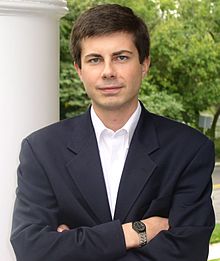
Pete Buttigieg served as mayor of South Bend, Indiana from 2012 to 2020. Elected in 2011 as a Democrat, he took office in January 2012 at the age of 29, becoming the second-youngest mayor in South Bend history, and the youngest incumbent mayor, at the time, of a U.S. city with at least 100,000 residents. During his mayoralty, he acquired the nickname "Mayor Pete". Coming out as gay in 2015, Buttigieg became the first elected official in Indiana to come out while in office, as well as the highest-ranking Indiana elected official to come out. Buttigieg won reelection later that year. In 2017, Buttigieg unsuccessfully ran for chairman of the Democratic National Committee, pledging to resign as mayor if he had been elected. Buttigieg opted against running for reelection in 2019, instead launching a campaign for the Democratic presidential nomination in the 2020 United States presidential election. While he subsequently lost his bid for presidency, during his campaign he garnered a high national profile.
Selected biography 34
Portal:Politics/Selected biography/34
Rebeca Elvira Delgado Burgoa (born 1 June 1966) is a Bolivian academic, lawyer, magistrate, and politician who served as president of the Chamber of Deputies from 2012 to 2013. As a member of the Movement for Socialism, she served as a party-list member of the Chamber of Deputies from Cochabamba from 2010 to 2014. Prior to her election to the lower chamber, Delgado served as a party-list member of the Constituent Assembly from Cochabamba from 2006 to 2007 and was vice minister of government coordination from 2008 to 2009. Delgado's near-decade-long political and legislative tenure was preceded by a fifteen-year career as a public servant, during which time she worked as a public defender and examining magistrate, was a magistrate on the Departmental Electoral Court of Cochabamba, and served as the Ombudsman's Office's delegate for the fight against corruption in Cochabamba.
Selected biography 35
Portal:Politics/Selected biography/35
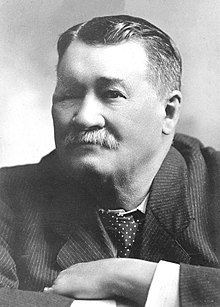
Leverett George DeVeber (sometimes spelled De Veber) (February 10, 1849 – July 9, 1925) was a Canadian politician who served as Member of the Legislative Assemblies of Alberta and the North-West Territories, minister in the government of Alberta, and member of the Senate of Canada. Born in New Brunswick and trained as a physician, he joined the North-West Mounted Police and came west, eventually settling in Lethbridge after leaving the police force. He represented Lethbridge in the North-West Legislative Assembly from 1898 until 1905, when Lethbridge became part of the new province of Alberta. He was appointed Minister without Portfolio in Alberta's first government, but resigned four months later to accept an appointment to the Senate, where he remained until his death.
Selected biography 36
Portal:Politics/Selected biography/36
Gregory Richard Gianforte (/ˌdʒiːənˈfɔːrteɪ/ JEE-ən-FOR-tay; born April 17, 1961) is an American businessman, politician, and software engineer serving as the 25th governor of Montana since 2021. A member of the Republican Party, Gianforte served as the U.S. representative for Montana's at-large congressional district from 2017 to 2021.
Selected biography 37
Portal:Politics/Selected biography/37
Bertha Beatriz Acarapi (born 7 June 1971) is a Bolivian politician and former television presenter serving as a party-list member of the Chamber of Deputies from La Paz since 2020. A member of the Movement for Socialism, she previously served as an El Alto municipal councillor from 2000 to 2004 on behalf of the Revolutionary Left Movement and from 2004 to 2010 on behalf of Plan Progress for Bolivia. During her second term, she served as president of the El Alto Municipal Council from 2006 to 2007, becoming the first woman to assume that post. Outside of politics, Acarapi's lengthy career in radio and television journalism led her to join ATB in 2015, becoming one of the country's first high-profile chola indigenous presenters.
Selected biography 38
Portal:Politics/Selected biography/38
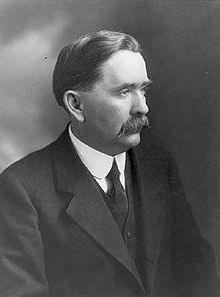
John Robert Boyle KC (February 3, 1871 – February 15, 1936) was a Canadian politician and jurist who served as a Member of the Legislative Assembly of Alberta, a cabinet minister in the Government of Alberta, and a judge on the Supreme Court of Alberta. Born in Ontario, he came west and eventually settled in Edmonton, where he practiced law. After a brief stint on Edmonton's first city council, he was elected in Alberta's inaugural provincial election as a Liberal. During the Alberta and Great Waterways Railway scandal, he was a leader of the Liberal insurgency that forced Premier Alexander Cameron Rutherford from office.
Selected biography 39
Portal:Politics/Selected biography/39
John Hancock (January 23, 1737 [O.S. January 12, 1736] – October 8, 1793) was an American Founding Father, merchant, statesman, and prominent Patriot of the American Revolution. He was the longest-serving president of the Continental Congress, having served as the second president of the Second Continental Congress and the seventh president of the Congress of the Confederation. He was the first and third governor of the Commonwealth of Massachusetts. He is remembered for his large and stylish signature on the United States Declaration of Independence, so much so that in the United States, John Hancock or Hancock has become a colloquialism for a person's signature. He also signed the Articles of Confederation, and used his influence to ensure that Massachusetts ratified the United States Constitution in 1788.
Selected biography 40
Portal:Politics/Selected biography/40
Han Sorya (Korean: 한설야, born Han Pyŏngdo; 3 August 1900 – 6 April 1976) was a Korean writer, literary administrator and politician who spent much of his career in North Korea. Regarded as one of the most important fiction writers in North Korean history, Han also served as head of the Korean Writers' Union and Ministry of Education.
During his career, Han survived a number of purges that were caused by factional strife within the Workers' Party of North Korea, to become a member of the Central Committee of the Workers' Party of Korea. Han, motivated by personal grievances against his rival writers, sometimes acted as the force behind the purges within the cultural establishment as well. Han himself was purged in 1962. In his works, Han offered some of the earliest known contributions to the cult of personality of Kim Il-sung. His influence is felt in North Korea even today, though his name has been forgotten from official histories. Han's best-known work, the anti-American novella Jackals, however, has been invoked in the 2000s.
Selected biography 41
Portal:Politics/Selected biography/41
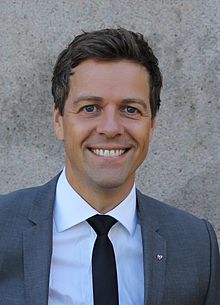
Knut Arild Hareide (born 23 November 1972) is a Norwegian politician who served as a member of parliament from Hordaland and as the leader of the Christian Democratic Party from 2011 to 2019. He served as Minister of Transport and Communications from 2020 to 2021, and as Minister of the Environment from 2004 to 2005 in the second Bondevik cabinet. In 2007, he announced he would step down from the national political scene for the time being, but he returned when he was nominated as the top candidate for the Christian Democratic Party ticket in Akershus in the 2009 election where he won the county's leveling seat. After Dagfinn Høybråten stepped down as party leader, Hareide was unanimously elected to take his place at the 2011 party convention. In the 2013 election, Hareide was reelected to parliament, this time from his home county of Hordaland.
Selected biography 42
Portal:Politics/Selected biography/42
Hammurabi (/ˌxæmʊˈrɑːbi/; Old Babylonian Akkadian: 𒄩𒄠𒈬𒊏𒁉, romanized: Ḫâmmurapi; c. 1810 – c. 1750 BC), also spelled Hammurapi, was the sixth Amorite king of the Old Babylonian Empire, reigning from c. 1792 to c. 1750 BC. He was preceded by his father, Sin-Muballit, who abdicated due to failing health. During his reign, he conquered the city-states of Larsa, Eshnunna, and Mari. He ousted Ishme-Dagan I, the king of Assyria, and forced his son Mut-Ashkur to pay tribute, bringing almost all of Mesopotamia under Babylonian rule.
Selected biography 43
Portal:Politics/Selected biography/43
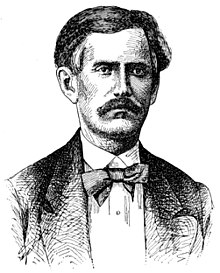
Román Baldorioty de Castro (23 February 1822 – 30 September 1889) was a leading Puerto Rican abolitionist and spokesman for the right to self-determination of Puerto Rico. In 1870, he was elected as a deputy in the Cortes Generales, the Spanish parliament, where he promoted abolition of slavery. In 1887, Baldorioty de Castro was the founder of the Partido Autonomista (Autonomist Party), also known as "Partido Autonomista Puro" (Pure Autonomous Party), "Partido Histórico" (Historic Party), and "Partido Ortodoxo" (Orthodox Party).
Selected biography 44
Portal:Politics/Selected biography/44

Eli Daniel Bebout (born October 14, 1946) is an American athlete and politician who served in the Wyoming House of Representatives from a multi-member district in Fremont County and the 55th district from 1987 to 2001, and later served in the Wyoming Senate from the 26th district 2007 to 2021, as a member of the Democratic and Republican parties. He was the first person to serve as both Speaker of the Wyoming House of Representatives and President of the Wyoming Senate
Selected biography 45
Portal:Politics/Selected biography/45
Alexander Berkman (November 21, 1870 – June 28, 1936) was a Russian-American anarchist and author. He was a leading member of the anarchist movement in the early 20th century, famous for both his political activism and his writing.
Berkman was born into a wealthy Jewish family in Vilna in the Russian Empire (present-day Vilnius, Lithuania) and emigrated to the United States in 1888. He lived in New York City, where he became involved in the anarchist movement. He was the one-time lover and lifelong friend of anarchist Emma Goldman. In 1892, undertaking an act of propaganda of the deed, Berkman made an unsuccessful attempt to assassinate businessman Henry Clay Frick during the Homestead strike, for which he served 14 years in prison. His experience in prison was the basis of his first book, Prison Memoirs of an Anarchist.
Selected biography 46
Portal:Politics/Selected biography/46
Anthony Neil Wedgwood Benn (3 April 1925 – 14 March 2014), known between 1960 and 1963 as The Viscount Stansgate, was a British Labour Party politician and political activist who served as a Cabinet minister in the 1960s and 1970s. He was the Member of Parliament for Bristol South East and Chesterfield for 47 of the 51 years between 1950 and 2001. He later served as President of the Stop the War Coalition from 2001 to 2014.
Selected biography 47
Portal:Politics/Selected biography/47

William Henry Seward (/ˈsuːərd/; May 16, 1801 – October 10, 1872) was an American politician who served as United States Secretary of State from 1861 to 1869, and earlier served as governor of New York and as a United States senator. A determined opponent of the spread of slavery in the years leading up to the American Civil War, he was a prominent figure in the Republican Party in its formative years, and was praised for his work on behalf of the Union as Secretary of State during the Civil War. He also negotiated the treaty for the United States to purchase the Alaska Territory.
Selected biography 48
Portal:Politics/Selected biography/48
Domenico Selvo (died 1087) was the 31st Doge of Venice, serving from 1071 to 1084. During his reign as Doge, his domestic policies, the alliances that he forged, and the battles that the Venetian military won and lost laid the foundations for much of the subsequent foreign and domestic policy of the Republic of Venice. He avoided confrontations with the Byzantine Empire, the Holy Roman Empire, and the Roman Catholic Church at a time in European history when conflict threatened to upset the balance of power. At the same time, he forged new agreements with the major nations that would set up a long period of prosperity for the Republic of Venice. Through his military alliance with the Byzantine Empire, Emperor Alexios I Komnenos awarded Venice economic favors with the declaration of a golden bull that would allow for the development of the republic's international trade over the next few centuries.
Selected biography 49
Portal:Politics/Selected biography/49
Shen Kuo (Chinese: 沈括; 1031–1095) or Shen Gua, courtesy name Cunzhong (存中) and pseudonym Mengqi (now usually given as Mengxi) Weng (夢溪翁), was a Chinese polymath, scientist, and statesman of the Song dynasty (960–1279). Shen was a master in many fields of study including mathematics, optics, and horology. In his career as a civil servant, he became a finance minister, governmental state inspector, head official for the Bureau of Astronomy in the Song court, Assistant Minister of Imperial Hospitality, and also served as an academic chancellor. At court his political allegiance was to the Reformist faction known as the New Policies Group, headed by Chancellor Wang Anshi (1021–1085).
Selected biography 50
Portal:Politics/Selected biography/50
Luís Alves de Lima e Silva, Duke of Caxias (pronounced [kaˈʃi.ɐs]; 25 August 1803 – 7 May 1880), nicknamed "the Peacemaker" and "the Iron Duke", was an army officer, politician and monarchist of the Empire of Brazil. Like his father and uncles, Caxias pursued a military career. In 1823 he fought as a young officer in the Brazilian War for Independence against Portugal, then spent three years in Brazil's southernmost province, Cisplatina, as the government unsuccessfully resisted that province's secession in the Cisplatine War. Though his own father and uncles renounced Emperor Dom Pedro I during the protests of 1831, Caxias remained loyal. Pedro I abdicated in favor of his young son Dom Pedro II, whom Caxias instructed in swordsmanship and horsemanship and eventually befriended.
Selected biography 51
Portal:Politics/Selected biography/51
Cleopatra VII Thea Philopator (Koinē Greek: Κλεοπάτρα Θεά Φιλοπάτωρ, lit. 'Cleopatra father-loving goddess'; 70/69 BC – 10 August 30 BC) was Queen of the Ptolemaic Kingdom of Egypt from 51 to 30 BC, and its last active ruler. A member of the Ptolemaic dynasty, she was a descendant of its founder Ptolemy I Soter, a Macedonian Greek general and companion of Alexander the Great. Her first language was Koine Greek, and she is the only Ptolemaic ruler known to have learned the Egyptian language. After her death, Egypt became a province of the Roman Empire, marking the end of the last Hellenistic-period state in the Mediterranean, a period which had lasted since the reign of Alexander (336–323 BC).
Selected biography 52
Nominations
- Adding articles
- Feel free to add WP:FA or WP:GA articles to the above list.
- See also Politics articles by quality
- If you are unsure or do not know how to add an entry, feel free to post a question, suggestion or nomination here below, or at the talk page Portal talk:Politics.

